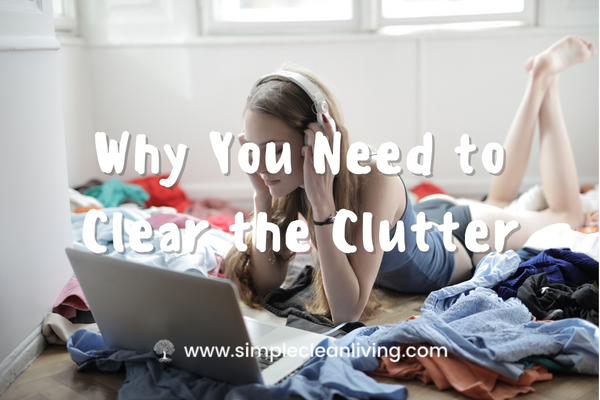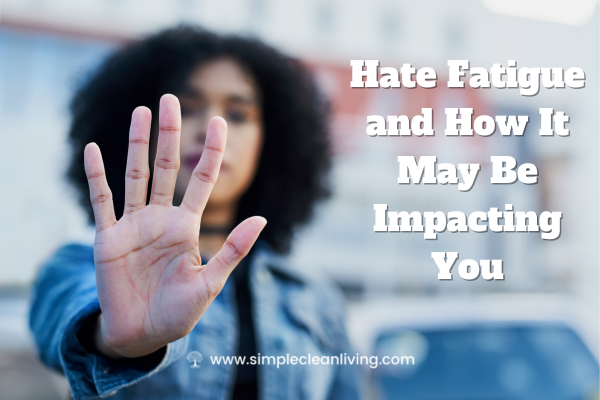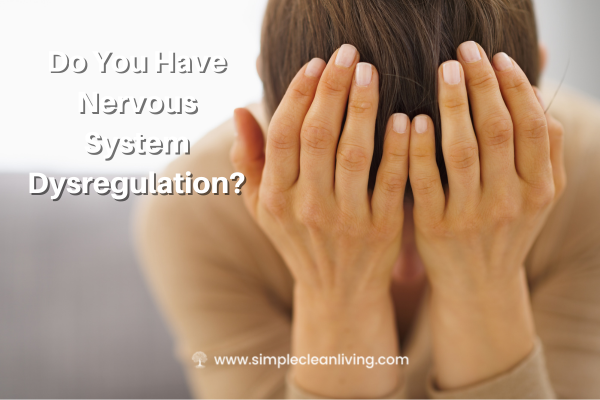Notice: I’m an affiliate for Amazon as well as other companies. Any links in this article may be affiliate links. I always appreciate it if you purchase something using my affiliate links. Doing so helps me to raise a little extra money that pays for the costs of running this site. And it allows me to continue bringing you quality content, all without costing you a thing! Thanks!
Your environment can impact you quite a lot. The space you live in can either be a sanctuary or it can be a source of stress. Having a house that is messy or cluttered is not optimal for anyone, including those who are sensitive. Living in a messy space can be quite stressful. And it can lead to feeling pretty darn overwhelmed. Studies have shown that a cluttered house can lead to elevated levels of cortisol, the stress hormone. And having clutter around the house can be visually overwhelming.
If clutter is an issue, you can start the process of getting rid of it! It may seem like a daunting task, but if you have a plan, it can really help. We’ve all had a house that is cluttered. And it can pile up quickly. So staying on top of it is important. The first hurdle is to overcome any procrastination.
Overcoming procrastination
Often, we put off clearing the clutter for two main reasons. First, we have filled our plates too full of tasks and obligations and don’t have time to devote to organizing. Second, we have seen the clutter and are so visually overwhelmed by it that we just don’t know where to start. We keep telling ourselves “I really need to clean that up!”. But somehow, it continues to pile up and we get even more stressed out. The greater the stress and overwhelm the less energy we have and it can become a snowball effect.
A clutter-free living environment helps to reduce stress. Having a clutter-free home, allows you to breathe and focus on the more important tasks. It also removes one source of stress…and as an empath that is important!
Facing the clutter
So how do you begin to tackle the clutter? You may need to make some time to begin. Schedule 30 minutes to an hour a few times a week if possible. Have a busy schedule? Even 10 minutes can make a difference! Once you have the time it is important to focus on a smaller cleaning task rather than becoming overwhelmed by looking at the big picture.
Plan on conquering one room at a time. And break it down even further to finish one task in your focus room at a time. So, for instance, if you’re starting in your bedroom, start with one drawer of your dresser. Or organize the closet. That will allow you to see progress more quickly. And know that in order to organize you will have to make a mess first. That can be a bit overwhelming for some empaths, so listen to your body! If you feel yourself getting overwhelmed, take a 10-15 minute break away from the mess. Close your eyes to remove any visual stimulation and find a quiet space to decompress your nervous system for that time.
Get others involved
When it comes to the family, get them involved. Set up a cleaning list for each family member. Then have each family member complete one chore at a time. If you give them more than one, then they can get overwhelmed and you’ll find that they will tend to procrastinate more. So break it down. Even the younger children can help with things like putting toys away or throwing dirty clothes in the hamper.
Incentives work well for the kids, so encouraging them to help with cleaning with the promise of a special treat, toy or movie can go a long way. Of course, there is always the incentive of the allowance. Many parents assign a monetary value to different reoccurring chores. If the kids complete that chore, then at the end of the week, they will receive an allowance based on the work that they completed. Don’t forget to give them praise and positive reinforcement for a job well done. It will go a long way to helping them to be more cooperative in the future.
Stay focused on one space at a time
So have you ever had this happen? You start cleaning your house. You’re in the kitchen and you find something that needs to go to the bedroom. So you bring it to the bedroom to put it away. Then you look around the bedroom at what needs to be cleaned and organized and you begin cleaning there. Then you find something in the bedroom that needs to go to the bathroom. So you bring it to the bathroom to put it away and then see what needs to be cleaned there. See the pattern? It’s very easy to get distracted and sidetracked when you start to declutter.
But you can get overwhelmed VERY quickly doing this. Your focus is scattered and seeing how much needs to be done becomes too much. So what usually happens is that you will give up and go and scroll social media, eat something, binge-watch something or even leave the house and go shopping. In other words, you find a way to soothe yourself with a different activity and give up cleaning.
To break this pattern one of the things I do that has worked very well for me is to place a plastic bin at the entrance to the room I’m currently organizing. Anything that does not belong in that room is thrown into the bin. That way I never have to leave the room and my focus can remain there. Once I’m done organizing that room, then I take the bin and bring those items to the proper areas of the house.
Set a goal for yourself
It can also be good to put together a goal sheet for clearing the clutter. Which room is the most important to start with? Be sure to break it down into small enough pieces, so that you aren’t having to clean it for hours at a time. Allot a specific, and achievable amount of time to do some cleaning. When you write down your cleaning goals, it will give you a greater sense of focus and allow you to really see what you are accomplishing as you cross each task off of your list. Have a game plan for which areas of the house should be organized more quickly and which can be pushed farther back on the list.
Often times people with a lot of clutter also say that they hate cleaning. But the truth is they don’t actually hate cleaning. They allow things to pile up so much that they feel very overwhelmed, and in turn, it causes a great deal of stress and so they don’t do anything. And so things just keep piling up and piling up…and so does the overwhelm and stress.
Recognizing clutter overwhelm
Once you recognize that it is the overwhelm and the resulting stress that is the real culprit, then you can decide what is the most important cleaning task to finish first. Then focus on that one task. If you begin wandering away from that task, be aware and get back on track. But breaking the cleaning down into smaller chunks will allow you to be less overwhelmed and stressed out. It’s important to remember that decluttering your house is a marathon, not a sprint. Let go of the idea that it all needs to be accomplished today! Give yourself some grace if you don’t get done as much as you’d like in a day. And get rid of the idea that everything needs to be perfect! Once your house starts getting more organized, you will feel the energy shift. You will feel lighter and your sense of well-being will improve!




